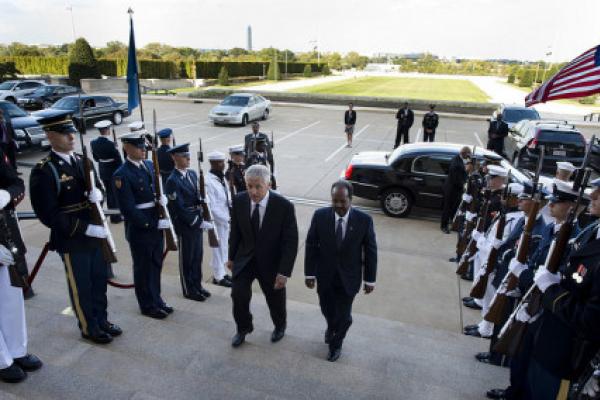WASHINGTON — The deadly mall attack in Kenya on Saturday is a sign that the al-Qaida-affiliated group that carried it out has been dealt a blow in Somalia and they are looking to generate headlines with more high-profile attacks in the region, a regional expert says.
The militant group that carried out the attack, al-Shabab, wants to establish an Islamist government in Somalia.
In recent years, however, African Union troops in Somalia have driven the militants out of most parts of the capital city of Mogadishu as a U.S.-supported government there has attempted to establish control over the country. At one time, al-Shabab controlled parts of Mogadishu.
The attack in Nairobi underscores al-Shabab’s organizational skills and their commitment to die for a cause, said David Shinn, a former U.S. ambassador to Ethiopia and a professor at George Washington University.
But it also highlights that the group has to rely on high-profile terrorist attacks that generate headlines because they lack popular support and have failed in any direct fights with African Union forces in Somalia.
“Increasingly, al-Shabab has alienated the average Somali,” Shinn said.
The Kenya attack came shortly before a deadly attack against a church in Pakistan, but analysts warn against concluding that radical Islam is gaining strength. A faction of the Pakistani Taliban claimed responsibility for it.
“These bombings are so common now,” Shinn said. “I would attribute it to happenstance and coincidence.”
Both attacks were conducted by groups with regional grievances, though some within the groups have more global aspirations.
Al-Shabab, for example, is primarily Somalis, though there is a smattering of foreigners in the leadership ranks, Shinn said. They are divided among those who envision a more global jihad and those whose goals are limited to ruling Somalia.
The Kenya attack may be a sign that al-Shabab will attempt more high-profile bombings, but their capability to do so is in question.
The last high-profile attack the group was associated with was in Uganda in July 2010, suggesting it takes the group time to get the training, financing and other support necessary to conduct a major attack. In between they have claimed responsibility for smaller attacks.
The 2010 attack killed at least 74 people and was aimed at two locations where people gathered to watch a televised World Cup match.
The latest attack comes as the United States has shown support for the government of Somalia in their fight against the militant group.
Somali President Hassan Sheikh Mahamud was in Washington recently and met with top U.S. officials, including Defense Secretary Chuck Hagel and National Security Adviser Susan Rice.
Jim Michaels writes for USA Today. Via RNS.
Got something to say about what you're reading? We value your feedback!
